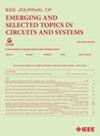Systematical Evasion From Learning-Based Microarchitectural Attack Detection Tools
IF 3.8
2区 工程技术
Q2 ENGINEERING, ELECTRICAL & ELECTRONIC
IEEE Journal on Emerging and Selected Topics in Circuits and Systems
Pub Date : 2024-11-04
DOI:10.1109/JETCAS.2024.3491497
引用次数: 0
Abstract
Microarchitectural attacks threaten the security of individuals in a diverse set of platforms, such as personal computers, mobile phones, cloud environments, and AR/VR devices. Chip vendors are struggling to patch every hardware vulnerability in a timely manner, leaving billions of people’s private information under threat. Hence, dynamic attack detection tools which utilize hardware performance counters and machine learning (ML) models, have become popular for detecting ongoing attacks. In this study, we evaluate the robustness of various ML-based detection models with a sophisticated fuzzing framework. The framework manipulates hardware performance counters in a controlled manner using individual fuzzing blocks. Later, the framework is leveraged to modify the microarchitecture attack source code and to evade the detection tools. We evaluate our fuzzing framework with time overhead, achieved leakage rate, and the number of trials to successfully evade the detection.基于学习的微架构攻击检测工具的系统规避
微架构攻击威胁着各种平台(如个人电脑、移动电话、云环境和AR/VR设备)中的个人安全。芯片供应商正在努力及时修补每一个硬件漏洞,使数十亿人的私人信息受到威胁。因此,利用硬件性能计数器和机器学习(ML)模型的动态攻击检测工具已成为检测正在进行的攻击的流行工具。在这项研究中,我们用一个复杂的模糊框架评估了各种基于ml的检测模型的鲁棒性。该框架使用单个模糊块以受控的方式操作硬件性能计数器。随后,利用该框架修改微体系结构攻击源代码并规避检测工具。我们用时间开销、实现的泄漏率和成功逃避检测的试验次数来评估我们的模糊框架。
本文章由计算机程序翻译,如有差异,请以英文原文为准。
求助全文
约1分钟内获得全文
求助全文
来源期刊

IEEE Journal on Emerging and Selected Topics in Circuits and Systems
ENGINEERING, ELECTRICAL & ELECTRONIC-
CiteScore
8.50
自引率
2.20%
发文量
86
期刊介绍:
The IEEE Journal on Emerging and Selected Topics in Circuits and Systems is published quarterly and solicits, with particular emphasis on emerging areas, special issues on topics that cover the entire scope of the IEEE Circuits and Systems (CAS) Society, namely the theory, analysis, design, tools, and implementation of circuits and systems, spanning their theoretical foundations, applications, and architectures for signal and information processing.
 求助内容:
求助内容: 应助结果提醒方式:
应助结果提醒方式:


